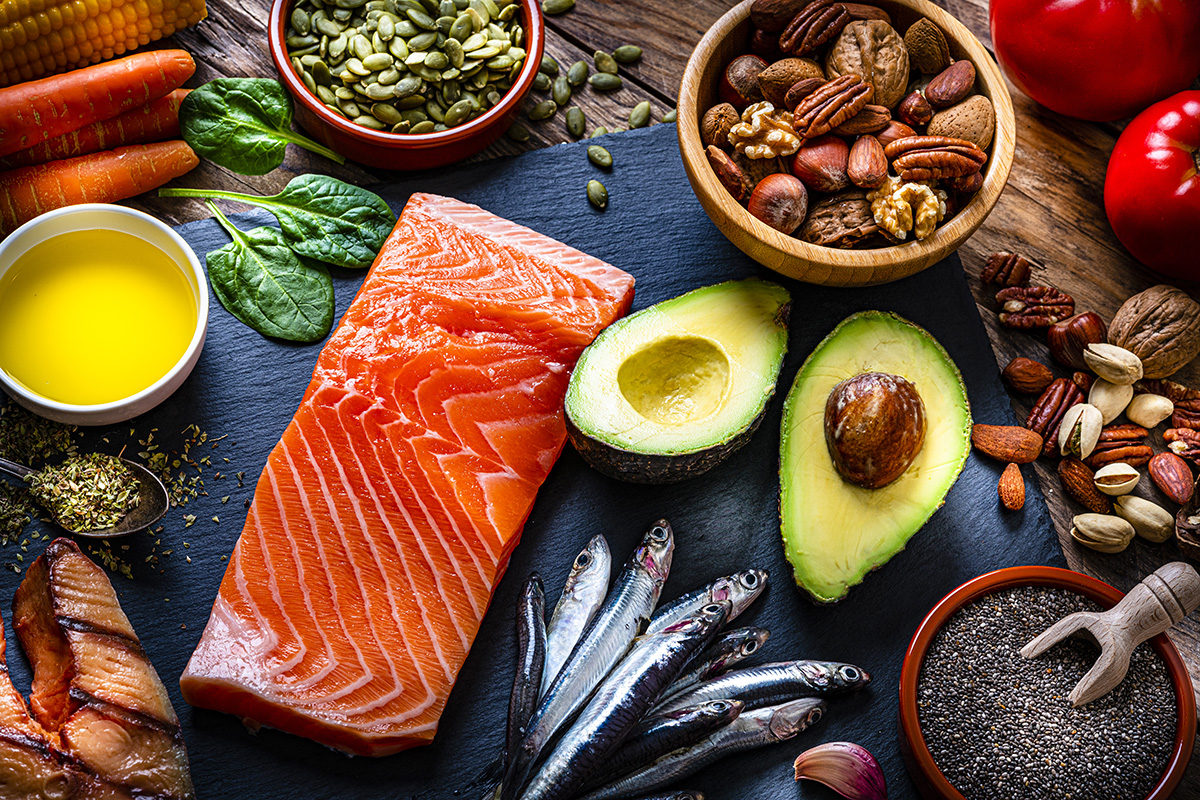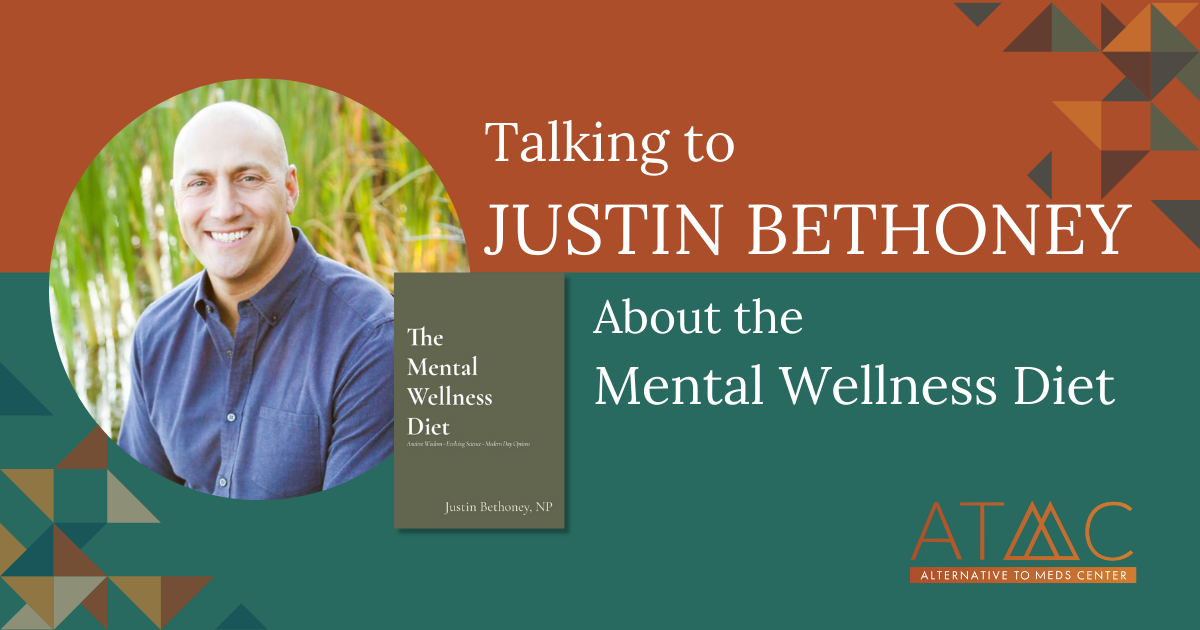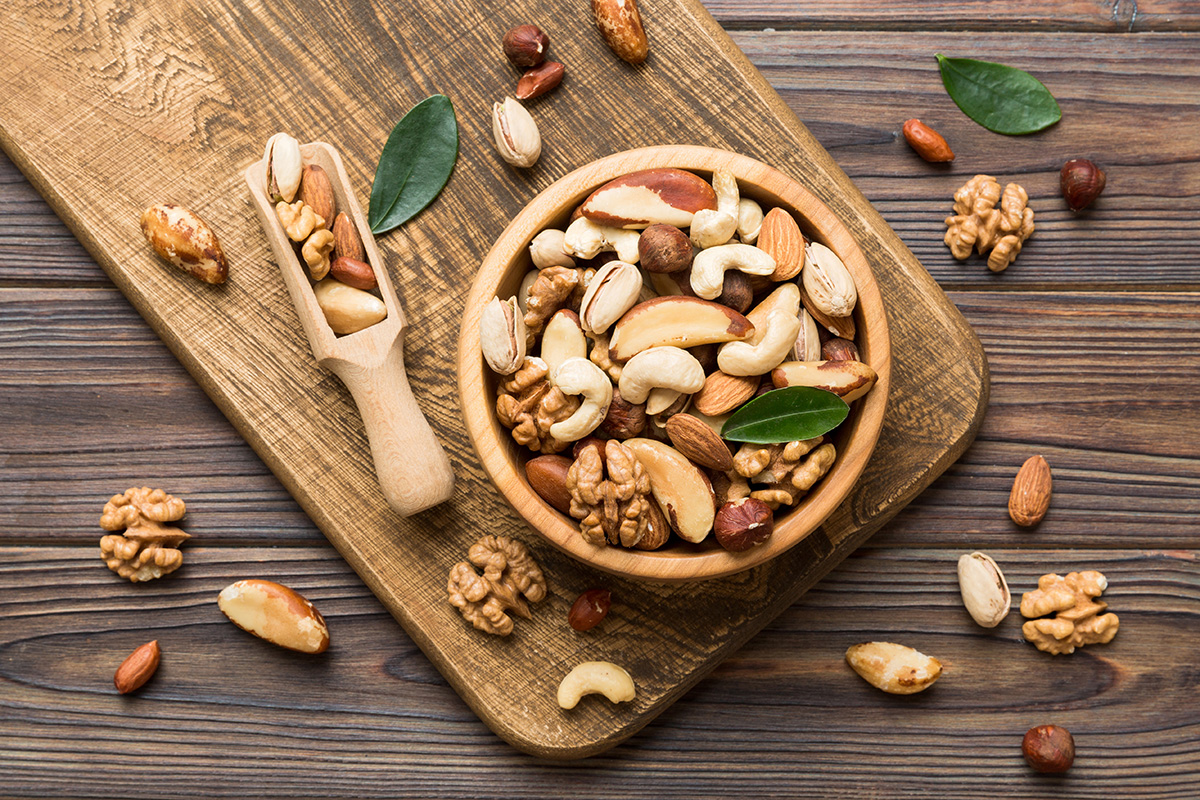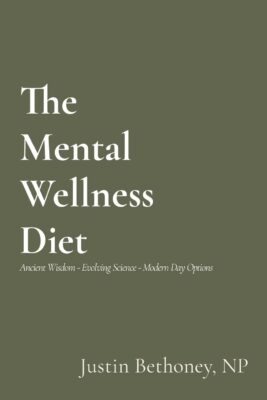Anxiety, depression, and ADHD can often be better managed using diet for mental wellness. That’s good news for people who take the time to explore the benefits of reducing medication use. Justin Bethoney says many of his patients “graduate” from needing medications.
“We work conservatively, take it step by step, and we lower the medications,” he says. “We try to pick a time to reduce the medications that is good. Not a lot of med changes before the holidays.”
What Is The Mental Wellness Diet?
Justin Bethoney’s mental wellness diet is a comprehensive guide to implement changes to the diet to improve mental wellness. Proper diet can reduce the symptoms that are too often medicated without more in-depth exploration for root causes, such as nutrient deficits, blood sugar issues, compromised gut health, and countless other environmental factors.
Millions of Americans struggle with symptoms of mental illness, whether they are diagnosed or not. According to NAMI, one in five adults in this country experience symptoms of a mental health illness at least once a year.1 Worse, those who are diagnosed may not have adequate treatment.
However, symptoms may be due, in part, to the way we eat and the environments we live in. Experts like Justin Bethoney posit that many people do not receive many of the types of stimulation they need. In addition, the modern-day diet is full of processed foods that lack real nutritional value. Many of these red flags are discussed at length in Bethoney’s book.
Everyday experiences for many Americans involve:
- Eating high-calorie foods
- Ignoring healthy, nutritional foods
- Psychological stress that pushes the brain to the limit
- Lack of community support
- Over-sanitation
- Environmental toxicity
The Mental Wellness Diet considers the types of environments our ancestors lived in and begs questions about our often unhealthy relationship with food. With a better awareness of which types of food are better for our brains and what eating habits serve unhealthy addictions, Justin Bethoney mentions that following the advice in his new book can help anyone feel better and reduce their reliance on prescription medications.
The Benefits of Glycine
Bethoney’s website explores the benefits of an important amino acid, Glycine that plays several critical roles in promoting wellness. Glycine is a simple and small amino acid that many people do not ingest in sufficient quantities. Justin Bethoney calls Glycine the body’s “peacekeeper.”
Glycine helps the body:
- Detoxify
- Combat inflammation
- Speed up digestion
- Boost energy
- Reduce achy joints
- Reduce wrinkles
Glycine helps the body digest fat by helping with the formation of bile salts that break down fat into small particles so they can be absorbed by the body. Inadequate bile salts can lead to nutritional issues and reduced availability of fat-soluble vitamins. Glycine is also critical for the creation of creatine, which supports the energy supply of cells and brain cells. The availability of creatine is important in designing a diet for mental wellness, especially when our brains are working hard and require an extra boost of energy.2
The Benefits of Glutathione in the Diet for Mental Wellness
Glycine also plays a crucial role as a building block for glutathione, which is commonly known as our body’s master antioxidant. While many antioxidants can only be obtained through food, glutathione can be made in our bodies. Antioxidants circulate in the body and neutralize free radicals that threaten healthy cells. Without the availability of antioxidants to fight free radicals, our bodies are much more prone to weight gain, fatigue, premature aging, and aches and pains.
This tiny but mighty amino acid also helps maintain our immune system by reducing inflammation. While inflammation is a natural reaction to an invading threat, swelling can often cause damage to the body. Having a sufficient supply of glutathione in your body can reduce the unintended consequences of inflammation. This can also limit the circulation of inflammatory messengers (cytokines). Cytokines can create even higher levels of inflammation than the body would normally experience.3

Tips for Boosting Glutathione and Glycine
Dr. Bethoney suggests adding powdered collagen peptides to your smoothies, oatmeal, or coffee. Due to the natural effects of collagen, your joints may even feel better over time.
Another dietary source for these amino acids is bone broth. You can make this at home by heating water, bones, meat, vegetables, and herbs over low heat for 24 to 48 hours. This releases collagen found in the meat and connective tissue. Boiling also releases minerals found in the marrow. You can also buy pre-made bone broth at grocery stores. It’s a delicious way to improve mental wellness through diet changes.
Benefits of Omega-3 for ADHD
Omega-3 fatty acids are found in eggs, nuts, seeds, salmon, and other foods. The fatty acid is considered an essential fatty acid due to the important role it plays in the body. For children, fatty acids are particularly important because they are the building blocks for the cells in our brains called neurons. Unfortunately, the typical American diet is generally lacking in these important fatty acids, since many food items like rice, chips, and carbs provide calories but low levels of important nutrients.

Rising rates of mental illness and neurodivergent symptoms are often attributed partly to diet, and researchers believe this link is progressing.5 Many things have to go right as the brain develops, and a lack of nutrition can lead an otherwise healthy individual to develop neurodevelopmental disorders like ADHD. It’s important to note that there are many factors that can contribute to the development of ADHD, including genetics, but a poor diet that is high in sugar and low in essential fatty acids is a critical risk factor.















